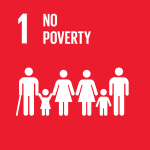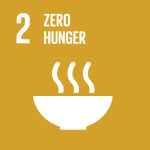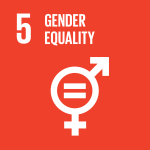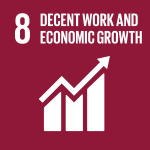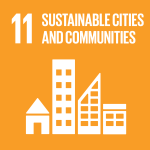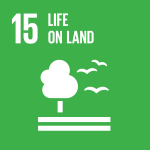Drawing on technology, nature-based approaches, and markets, UNDP-supported adaptation project to bolster livelihoods and the Thai economy, contributing towards COVID-19 recovery
Songdo, 7 October 2021 – Ahead of the international climate conference COP26 next month, the global Green Climate Fund has today approved a new US$17.5 million grant towards building the climate change resilience of farmers in Thailand. Approximately 62,000 people living in three of the country’s vulnerable northern provinces are set to directly benefit, with indirect benefits for more than 25 million Thais across the Greater Chao Phraya River Basin.
“We appreciate the support of the Green Climate Fund in bringing this innovative new project to life,” said Director-General of Royal Irrigation Department, Mr. Praphit Chanma. “Led by the Royal Irrigation Department under the Ministry of Agriculture and Cooperatives, with support from the United Nations Development Programme (UNDP), it will bring technology, ecosystem-based approaches, and markets to bear in helping farmers and the economy avoid climate catastrophe. With increasingly volatile climate conditions ahead, this project is highly appropriate. As a result, about 62,000 people in the Yom and Nan river basins will benefit directly, with more than 25 million Thais across the Greater Chao Phraya River Basin ultimately standing to benefit.”
While Thailand has made remarkable progress in social and economic development over the last four decades, rising temperatures and more frequent and extreme droughts and floods driven by climate change pose an increasing threat to the country’s economy. In this context, COVID-19 has presented another set of immediate challenges, with Thailand experiencing one of the steepest contractions among ASEAN member states, including a contraction in agricultural employment of 10.9 percent.
Water management and sustainable agriculture has emerged as a leading concern. The new project will help address the issues by building the resilience of farmers in in the Yom and Nan river basins in Sukhothai, Phitsanulok and Uttaradit provinces through improved climate information and forecasts, the introduction of more climate-resilient agricultural practices, and expanded access to markets and finance.
At the same time, it will work with subnational and national agencies to improve risk-informed planning and decision-making, promote cross-sectoral coordination, and upgrade critical infrastructure such as irrigation canals and floodgates.
With the Green Climate Fund grant met with $16.2 million co-finance from the Royal Thai Government, a private sector partner Krungsri Bank will also contribute more than $113,000 towards financial literacy training for farmers. The Bank for Agriculture and Agricultural Cooperatives has also pledged a line of credit of $16 million to help farmers invest in adaptation measures.
Other key implementation partners include the German development agency GIZ and King Mongkut's University of Technology North Bangkok, with respective expertise in ecosystems-based water management and agricultural modeling as well as dissemination and expanding access to climate information to the public, in particular to agricultural households.
“UNDP has been working closely with the Thai Government on climate change preparedness for a number of years, including building capacity to secure global finance for climate action, and efforts to integrate agriculture into national adaptation planning,” said Resident Representative of UNDP in Thailand, Renaud Meyer. “We are pleased to support this transformational new project which will contribute across the Sustainable Development Goals – including reducing poverty and hunger, accelerate climate action, advancing decent work and economic growth – while also helping the government realise its Nationally Determined Contribution under the global Paris Agreement. The current heavy flooding, impacting more than 30 provinces across Thailand and 200,000 households and their livelihoods, underlines the urgency of climate action and identifying long-term solutions to increase the resilience of communities and farmers.”
Implementation is expected to begin in March 2022. For more information, please visit the project page here.
About the United Nations Development Programme
UNDP is the leading United Nations organization fighting to end the injustice of poverty, inequality, and climate change. Working with our broad network of experts and partners in 170 countries, we help nations to build integrated, lasting solutions for people and planet. www.undp.org
About the Green Climate Fund
The Green Climate Fund (GCF), the world’s largest fund dedicated to climate finance, supports developing countries to reduce their carbon emissions and strengthen their resilience to climate change. Set up by the United Nations Framework Convention on Climate Change (UNFCCC) in 2010, GCF is an operating entity of the UNFCCC’s Financial Mechanism that also serves the Paris Agreement. GCF drives climate finance to where it is needed most: in the Least Developed Countries, Small Island Developing States, and African States.
Additional notes to editors
In 2011, 66 out of 77 provinces in the country were affected by flooding, with over 20,000 square kilometres of agricultural land damaged, and nearly 900 lives lost. In 2012, the World Bank reported Thailand suffered $46.5 billion in total damages and loss and required an estimated $14 billion in loans for rehabilitation and reconstruction from the 2011 flooding alone.
Over the coming decades Thailand is projected to experience more frequent and extreme weather events, including rain, floods and droughts.
Agriculture employs around 30 percent of the national population of Thailand and constitutes around 8 percent of GDP.
In 2012 Thailand identified agriculture, water resource management and modeling as climate-vulnerable sectors urgently in need of adaptation.
The poor are more severely affected by climate variability and extremes due to a higher dependence on natural resources, and, in general, limited access to resources for responding and adapting.
Sukhothai, Phitsanulok and Uttaradit provinces – the three provinces covered by the new project – have relatively high levels of poverty compared to the broader population.
The Yom and Nan river basins are of critical importance in Thailand – water management in this area would not only ease the severity of flooding for farmers in the vicinity, but also further downstream in the broader Great Chao Phraya river basin. In addition, adequate water management will reduce drought related risks to crops and agriculture-based livelihoods in the region.
For media enquiries:
Wadee Deeprawat | Communications and Outreach Specialist, UNDP in Thailand | Ph. 02 288 3350 Ext. 3364 | E. wadee.deeprawat@undp.org
For technical enquiries:
Charles Yu | Technical Specialist, Climate Finance and Investment, UNDP | chongguang.yu@undp.org

